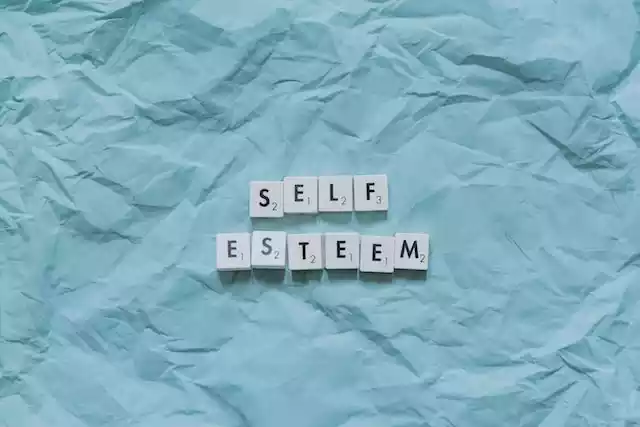How to Build Self-Confidence: 13 Proven Tips
Self-confidence is the key to unlocking your true potential and achieving success in all aspects of life. Whether you’re striving for career advancement, nurturing relationships, or pursuing personal goals, having a healthy level of self-assurance can make a remarkable difference.

In this article, we will delve into the 13 most effective ways to build self-confidence, equipping you with practical tips and insights to boost your confidence levels and become the best version of yourself.
Ways to Build Self-Confidence
Building self-confidence requires a holistic approach that encompasses both internal and external factors. Here are the top 13 strategies to help you cultivate and nurture self-confidence:
1. Embrace Self-Acceptance
Self-confidence begins with self-acceptance. Embrace your strengths, weaknesses, and imperfections, recognizing that they contribute to your uniqueness.
By accepting yourself as you are, you’ll be able to focus on personal growth without constantly comparing yourself to others.
2. Set Achievable Goals
Setting achievable goals is crucial for building self-confidence. When you set realistic goals, you create a roadmap for success. Break your larger goals into smaller, manageable steps, celebrating each milestone you reach along the way.
This sense of achievement will enhance your belief in your abilities and boost your self-confidence.
3. Cultivate a Positive Mindset
Your Internal Dialogue Shapes Your Confidence. Embrace positive self-talk by being kind, compassionate, and encouraging towards yourself.
Challenge and replace negative thoughts with affirmations and empowering statements. Cultivating a positive inner dialogue enhances self-confidence and fosters a healthy mindset.
4. Challenge Yourself
Stepping outside of your comfort zone is a powerful way to build self-confidence. Don’t be afraid to try new things and take on unfamiliar challenges.
By pushing your boundaries, you learn and grow, which can significantly boost your confidence as you realize your capabilities and adaptability.
5. Take Care of Yourself
Self-care plays a significant role in boosting self-confidence. Nourish your body and mind by eating a healthy diet, engaging in regular exercise, and getting enough restful sleep.
When you prioritize your well-being, you feel better physically and mentally, which can have a positive impact on your confidence levels.
6. Embrace Your Accomplishments
Dedicate Time to Recognize and Celebrate Your Achievements, Regardless of how small it is. Reflect on your successes and the progress you’ve made. This recognition will reinforce your self-confidence and motivate you to continue striving for excellence.
7. Don’t Compare Yourself to Others
Comparing yourself to others is a detrimental habit that can erode self-confidence. Remember that everyone’s journey is unique, and we all have different strengths and weaknesses.
Focus on your own progress and goals, embracing your individuality. Emphasize self-improvement rather than competing with others.
8. Surround Yourself with Positive People
The company you keep has a significant influence on your self-confidence. Surround yourself with positive, supportive individuals who believe in you and encourage your personal growth.
Their belief and encouragement will uplift your spirits, provide valuable feedback, and inspire you to achieve your goals.
9. Learn from Failure
Failure is an opportunity for growth and learning. Embrace failure as a stepping stone to success, reframing setbacks as valuable lessons. By learning from your mistakes and persisting in the face of adversity, you’ll cultivate resilience and enhance your self-confidence.
10. Enhance Your Skills and Knowledge
Continuously invest in your personal and professional development. Acquire new skills, expand your knowledge, and stay updated in your areas of interest. The more expertise you possess, the more confident you’ll feel in your abilities.
11. Practice Self-Compassion
Be kind and compassionate toward yourself. Treat yourself with the same empathy and understanding you would extend to a loved one. By practicing self-compassion, you’ll build resilience, bounce back from setbacks, and strengthen your self-confidence.
12. Seek Assistance If Needed
If you find yourself struggling with low self-confidence, don’t hesitate to seek professional help. A therapist or coach can provide guidance and support tailored to your specific needs. They can help you identify the root causes of your insecurities and develop strategies to boost your confidence effectively.
13. Remember That Everyone Feels Insecure Sometimes
It’s essential to recognize that everyone experiences feelings of insecurity at times. It’s a natural aspect of being human.
Instead of letting your insecurities hold you back, remind yourself that you are not alone in feeling this way. Embrace your vulnerabilities as opportunities for growth and personal development.
FAQs about Building Self-Confidence
Q1: How long does it take to build self-confidence?
Building self-confidence is a journey that varies for each individual. The time it takes to build self-confidence depends on various factors, such as your starting point, commitment, and the strategies you employ. With consistent effort and practice, you can experience noticeable improvements in your self-confidence over time.
Q2: Can self-confidence be learned?
Absolutely! Self-confidence is not an innate trait, but a skill that can be cultivated and strengthened over time.
By adopting the right mindset, practicing effective strategies, and seeking support when needed, anyone can learn to build and boost their self-confidence.
Q3: What are some common obstacles to building self-confidence?
Some common obstacles to building self-confidence include fear of failure, negative self-talk, comparing oneself to others, and past negative experiences. Identifying and addressing these obstacles is essential for overcoming self-doubt and building a healthy level of self-confidence.
Q4: Can self-confidence be regained after a setback?
Yes, self-confidence can be regained after a setback. It’s normal to experience setbacks and moments of self-doubt. The key is to learn from these experiences, practice self-compassion, and adopt a growth mindset. With persistence and a positive outlook, you can rebuild and strengthen your self-confidence.
Conclusion
Building self-confidence takes time and effort, but with dedication and perseverance, you can develop a strong sense of self-assurance.
By implementing the 13 strategies discussed in this article – embracing self-acceptance, setting achievable goals, cultivating a positive mindset, challenging oneself, practicing self-care, embracing your accomplishments, stop comparing oneself to others,
surrounding oneself with positive people, learning from failure, enhancing your skills and knowledge, and practicing self-compassion, seeking assistance if needed, remembering that everyone feels insecure sometimes.
You’ll embark on a rewarding journey of self-discovery and personal growth.
Remember, building self-confidence is within your reach, and with dedication and perseverance, you can become the confident, resilient individual you aspire to be.





